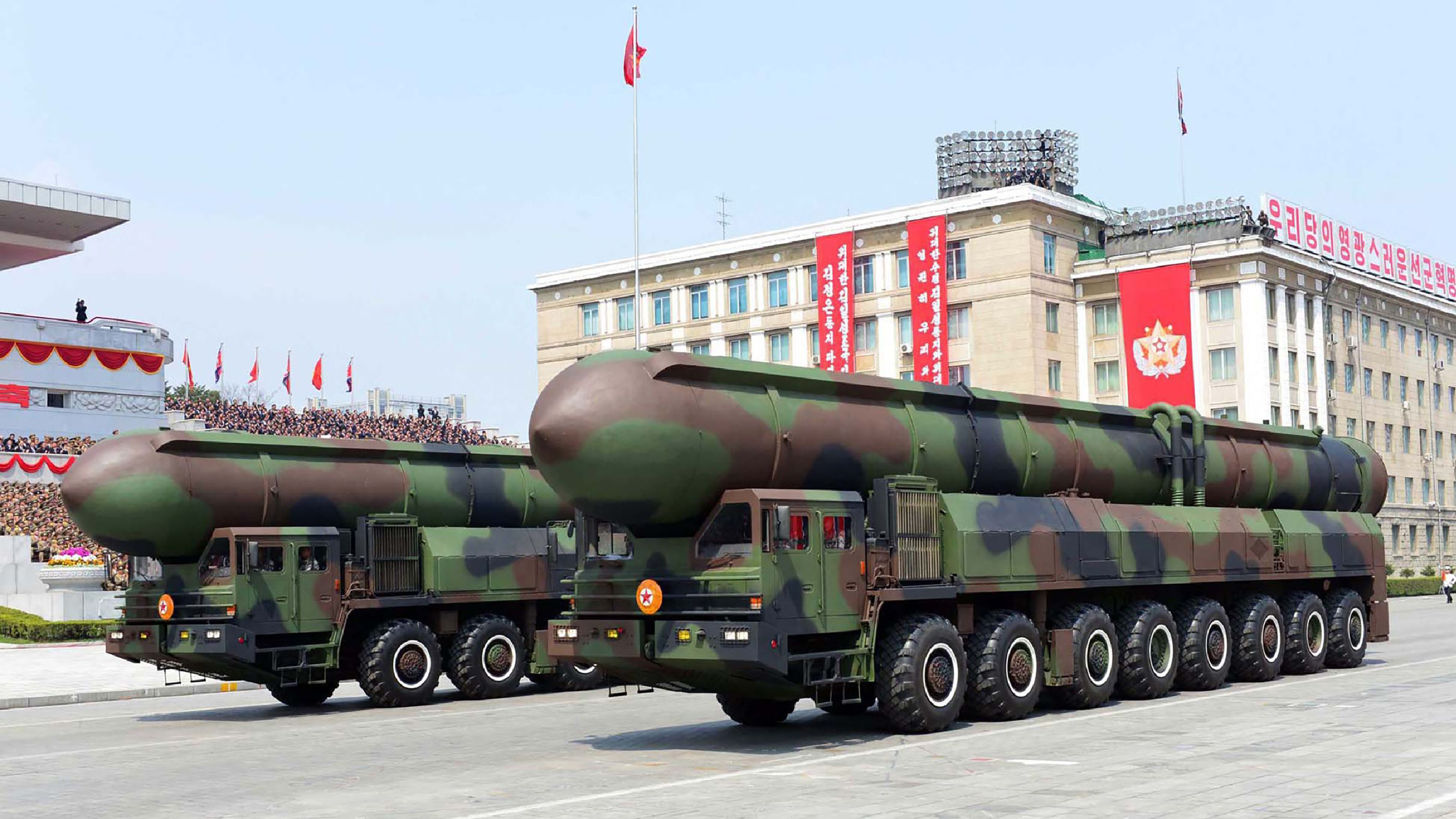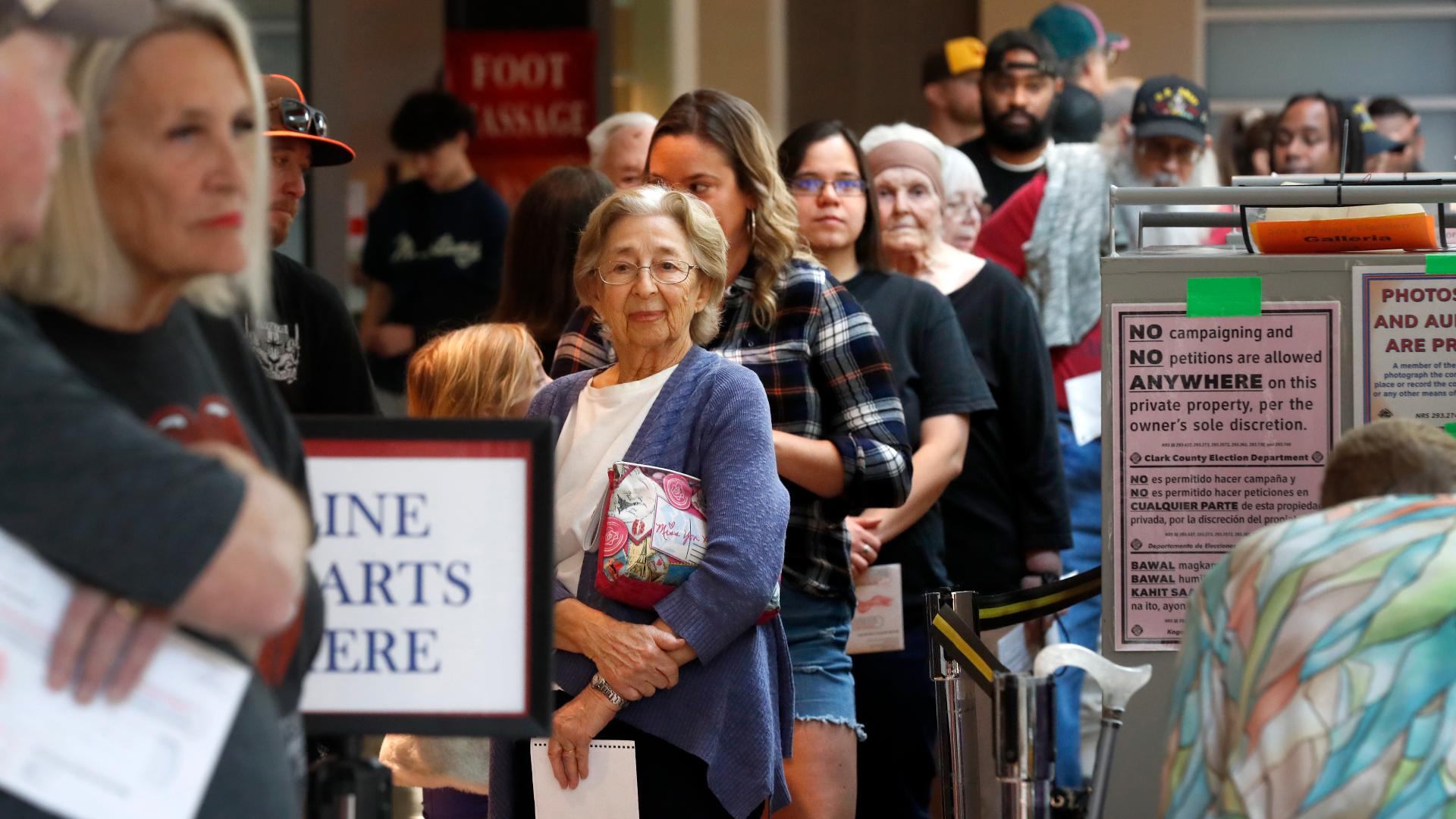A feared military confrontation between North Korea and the United States didn’t materialize over the weekend, but tensions between the two countries remain dangerously high for the indefinite future.
A failed test of a medium-range ballistic missile that blew up almost immediately Sunday did not provoke a U.S. military response. Even so, North Korea has made progress with its nuclear weapons and missile programs and is led by an unpredictable dictator, Kim Jong Un, who views America’s new president as a threat. That won't change anytime soon.
President Trump has vowed that he will not allow North Korea to develop a long-range missile capable of carrying a nuclear weapon that can strike the United States, and Kim has vowed to pursue that very goal to prevent a pre-emptive U.S. strike. Last week, North Korea warned that the two countries were edging toward nuclear war.
The U.S. military was watching North Korea intently Saturday as it marked the 105th birthday of founding leader Kim Il Sung, the grandfather of Kim Jong Un. The North traditionally marks the occasion with shows of military strength, including nuclear or missile tests. This time, it paraded its latest missile hardware through the capital Pyongyang, showing off many new weapons. They included a new short-range missile and the country’s latest submarine-launched missile.
In advance of the celebration, the Pentagon dispatched a carrier group to waters off the Korean peninsula, and Trump delivered an unspecified threat: “North Korea is a problem,” he said. “The problem will be taken care of.”
The North Koreans did not conduct a nuclear weapons test, which would have been its sixth since 2006, a far more provocative move than a missile test, which the U.S. military confirmed proved to be a dud.
Still, the United States showed no sign of backing down in the face of North Korea's increasingly belligerent rhetoric and actions. Vice President Pence, who arrived Sunday in Seoul as part of a 10-day Asian trip, said, “Our resolve has never been stronger, our commitment to this historic alliance with the courageous people of South Korea has never been stronger, and with your help and God’s help, freedom will ever prevail on this peninsula.”
Lt. Gen. H.R. McMaster, Trump's national security adviser, said on ABC's This Week that the missile test "fits into a pattern of provocative and destabilizing and threatening behavior on the part of the North Korean regime. He added that "there’s an international consensus now — including the Chinese and the Chinese leadership — that this is a situation that just can’t continue."
The U.S. has nearly 30,000 troops stationed in South Korea, and recently began installing a missile defense system to protect the country — including 20 million people living in Seoul — from a North Korean attack on the capital city, which is the region's biggest fear.
Sunday's ballistic missile test was a humiliating failure for Kim, and may only spur him to accelerate his nuclear program.
David Albright, a nuclear expert with the Institute for Science and International Security, estimated that through 2020, North Korea will have enough plutonium and weapons-grade uranium for about 25-50 nuclear weapons, according to a report provided to the Associated Press.
Political tensions between the United States and North Korea also are heightened because Trump is in the first months of his presidency, and North Korea may be testing him to see how he reacts. Trump's answer: He is willing to unleash military power to eliminate any threat to the U.S. homeland. But Trump hasn't ruled out non-military pressure by urging China — North Korea's economic lifeline — to rein in its volatile neighbor to the south.
On Sunday, Trump tweeted that China is "working with us on the North Korean problem."
Why would I call China a currency manipulator when they are working with us on the North Korean problem? We will see what happens!
— Donald J. Trump (@realDonaldTrump) April 16, 2017
Last week the United States dropped one of the biggest conventional bombs in its arsenal — a 22,000-pound behemoth — on an Islamic State cave and tunnel network in Afghanistan, an action that captured worldwide attention.
Before that, the U.S. military fired 59 cruise missiles at an airbase in Syria in retaliation for President Bashar Assad's alleged use of chemical weapons on civilians in a rebel-held city.
The Pentagon said the Afghanistan and Syrian strikes were not meant to send a broader message, but North Korea surely was watching closely and drawing lessons from Trump's willingness to use military power.
It doesn't appear to have cooled the rhetoric or actions of North Korean leaders. North Korea Vice Minister Han Song Ryol told the Associated Press on Friday that his country has determined the Trump administration is "more vicious and more aggressive" than that of President Barack Obama, and is preparing for war.


